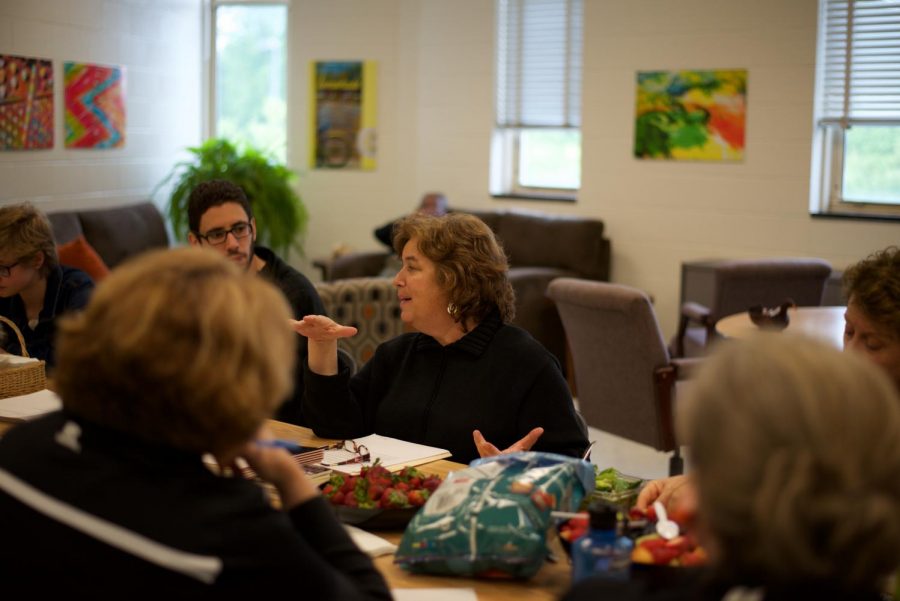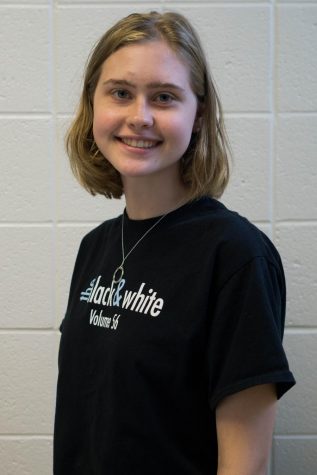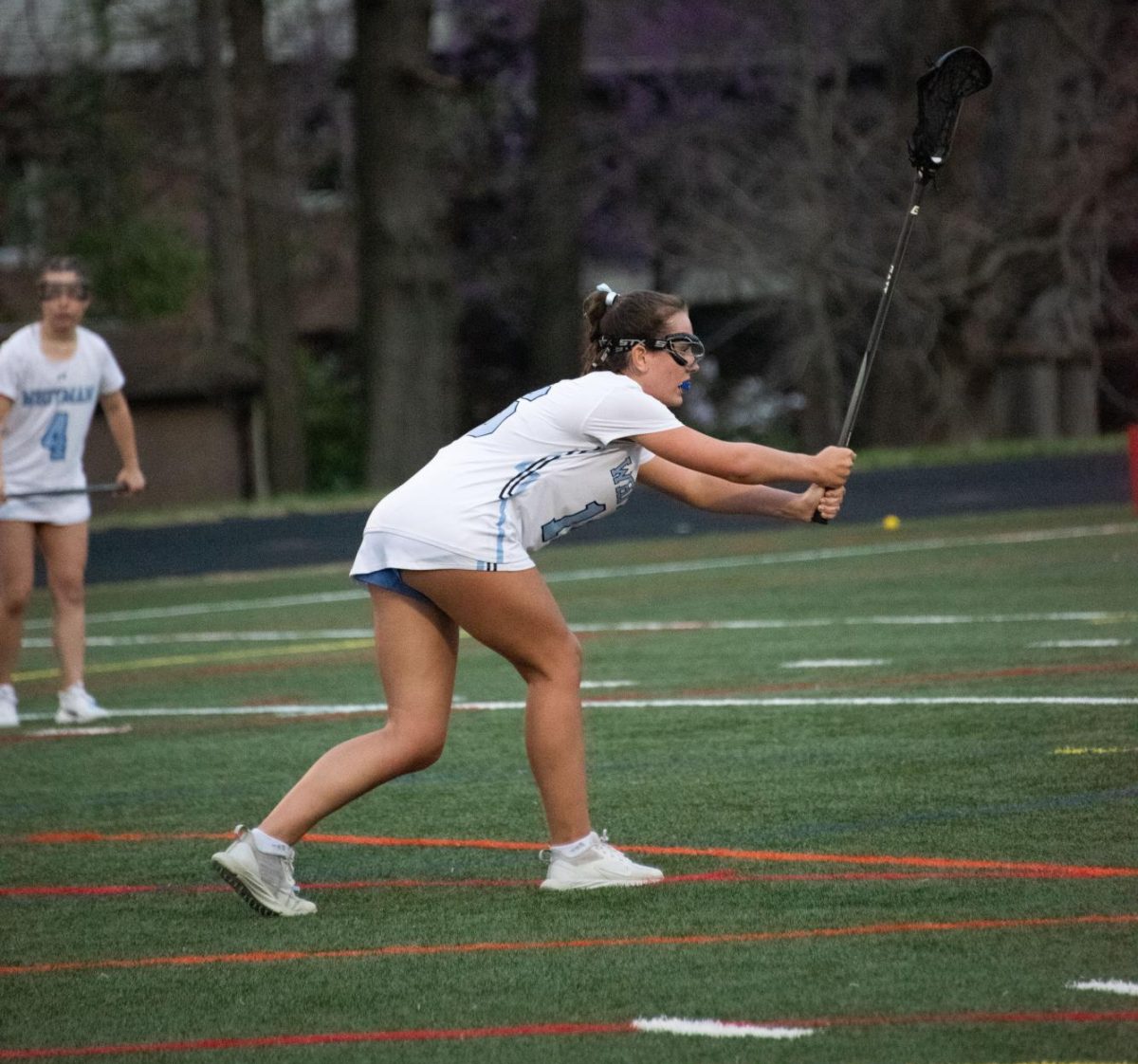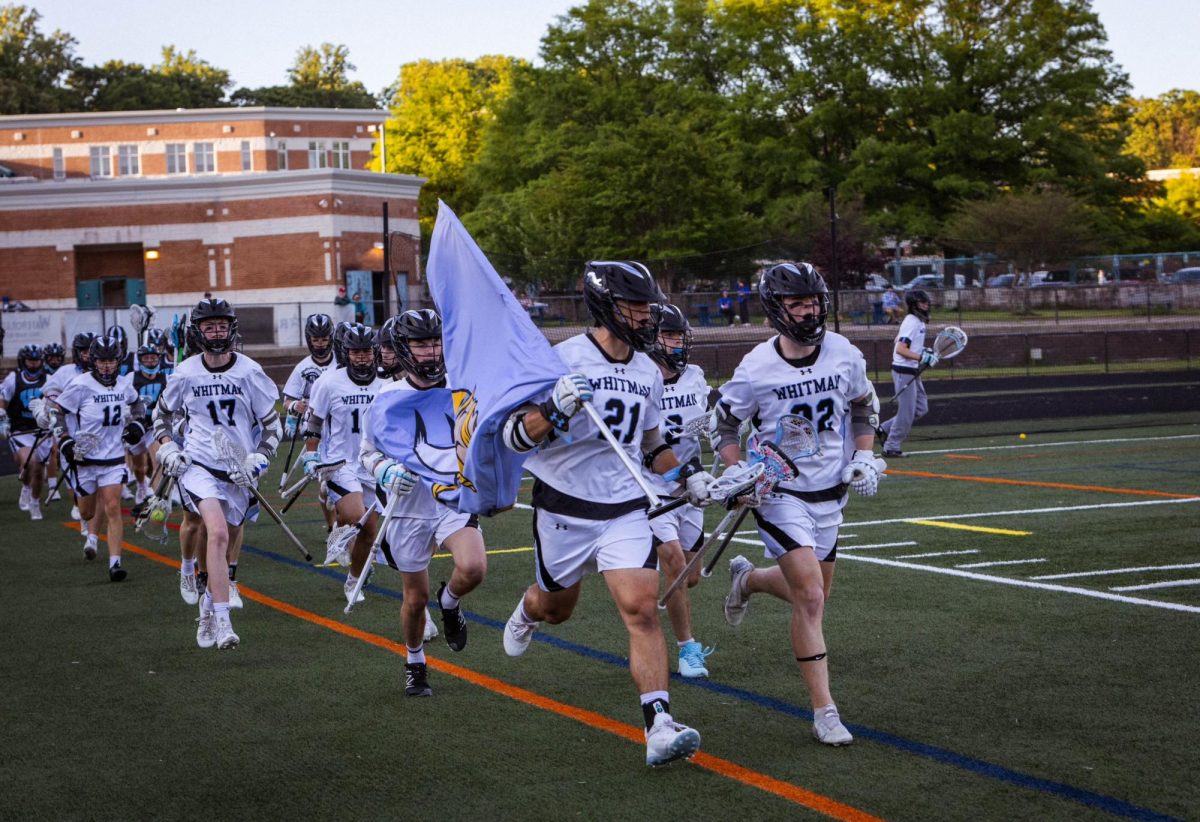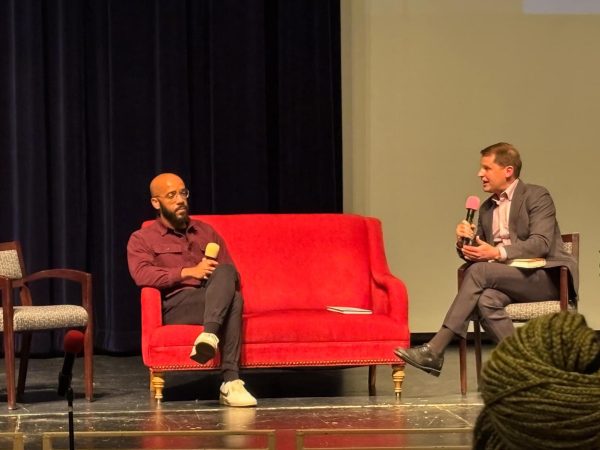Arts Council poet teaches workshops for April poetry month
Poet Elizabeth Rees speaks to teachers during sixth lunch on Friday, May 12 about strategies for teaching poetry in schools. Rees visited English and creative writing classes May 8-12 in order to better educate students and teachers on poetry. Photo by Annabelle Gordon.
May 17, 2017
Elizabeth Rees, Maryland State Arts Council Poet-in-Residence, visited freshman English classes and the creative writing class May 8-12 to teach students how to write, analyze and enjoy poetry.
Rees, who strives to educate people on diverse types of poetry, teaches introductory creative writing and poetry classes at the Writer’s Center in Bethesda. She particularly enjoys visiting schools because English curricula typically lack emphasis on poetry and fail to teach it correctly, she said.
“Part of the problem is the grading, or the attempted grading,” Rees said. “Poetry is very subjective, so there’s no way to standardize grading poetry, but schools try doing that anyway.”
Rees first worked with Whitman students ten years ago, during a week-long poetry program when she taught with English teacher Michelle Quackenbush. Media center specialist April Moyo expressed interest in bringing a poet to Whitman this year, so Quackenbush suggested Rees.
“Because April is National Poetry Month, I wanted to do something to honor that,” Moyo said.
During her two days of instruction, Rees encouraged students to create their own poetry in order to help students connect with poetry, she said.
In each instructional period, Rees required students to analyze a poem representing a single emotion. Then, students picked an emotion and wrote their own poem, mirroring the example. Junior Saul Singleton, who participated in Rees’ lessons, said he enjoyed her style of teaching because it was challenging yet fun.
“It was awesome to hear poems with personified emotions, and then trying to simulate them was an awesome experience,” Singleton said. “You think it’ll be easy to write about a certain emotion but to me it was super hard to make something so much like the original poem.”
Rees also worked with English teachers to organize a poetry “share session” during sixth lunch May 15, where students read poems they’d written with Rees’ instruction.
“It was so cool to hear the poems that everyone wrote, and it really reminded me that everyone has different thoughts,” Singleton said. “I was in awe during so many poems because they all had these awesome thoughts that I never would have thought of in a million years.”
Some teachers also said the effectiveness of Rees’ teaching methods impressed them.
“She made poetry tangible and active for us,” Quackenbush said. “Rather than dissect poems, we learned how to put words together, to move from the concrete to the abstract.”
English teacher Madeline Tanzi agreed, saying she loved the way Rees individualized the poetry process and encouraged all students to produce their own poems.
“Sometimes [teachers] think in terms of students who are not creative, and students who are,” Tanzi said. “But she believes all students have a capacity for creativity, and she encourages all of them.”
Rees confirmed her mission to help all students find their voice, but acknowledged that accessing inspiration can be hard.
“Part of the act of writing poetry is discovering what you have to write,” Rees said. “The hardest part of teaching poetry is getting students to discover that about themselves.”



